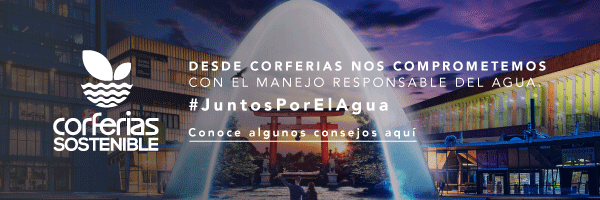Blog

THE FUTURE OF EDUCATION AND THE NEW APPROACHES TO LEARNING
TecnhologyThe era of extraordinary limitless cognitive thinking is upon us. Learning by itself is not possible unless our own experiences and those of others are present in the minds and bodies of human beings. For this process to be possible, it is fundamental to consider new ways of navigating within an intelligent information system such as new networks and storage systems So, why type of navigation is more adequate for this to “click” in our minds?
Very well, many investigators believe that the secret is to connect the world from our own brains, supported and based on cybernetic systems, for example artificial intelligence, that in its initial stages was only meant for leisure, diversion or science fiction; as we see in the novels of Isaac Asimov, Jules Verne, Arthur C. Clarke, and other great authors.
Today this science is a reality that invades our everyday life. Intelligent machines connect “all” human knowledge and history, conforming a highly complex massive epistemological community, that is allow us to see hidden opportunities in an intellectual growth process among other orders of problem resolution.
In a look at the future, these fantastic tools will improve and multiply possibilities for mankind. In this way, tomorrow is seen as a slightly hallucinating horizon and hopeful at the same time in the desire to learn, and advance in the secrets and hidden enigmas of the universe and problem resolution.
What will be the scenarios, activities, and most frequent interactions for learning to be more effective, permeable, attractive and close to reality, producing the desired results in scaling and improving the quality of life in all fronts for upcoming decades?
These will be three fundamental challenges that will be coming regardless of developments made in the immediate future in an advanced era of education:
-
Challenges:
To reach an optimal education and eradicate illiteracy. The hardest challenges will be set in less developed countries where access to education, social investment, and inequality is complex in every stage of a child’s development as well as teenagers and adults. Eradicating illiteracy where 775 million people are illiterate requires a revision of state policies that allows to see the future more clearly and a possible encouraging cognitive development, furthermore one with quality, that links human consciousness simultaneously. In the same way, this act will be centered in values of solidarity, gratitude, respect, social and environmental responsibility on global citizens. -
Significant and radical changes in the learning process:
Education around the year 2030 will be tightly committed with leading edge technology, where student’s brains will be connected to a cloud system 24 hours, making available the backing up of information of memories, emotions, knowledge and experiences. Therefore, individual and collective learning will be potentialized benefiting every type of educational initiative. Personalized education will be present through individual virtual tutorials supported by augmented reality, allowing a higher level of comprehension with respect to practices and sensory experiences. Likewise, these will be helped and oriented by a cognitive artificial intelligence, where billions of gigabytes of information and data are used to evaluate, interpret, and apply knowledge to better understand its context in multiple determinant dimensions of space and time.
“intelligent machines” will very soon be able to amplify our natural neural sensors; will listen and understand patterns, and even interpret many of our needs, behaviors, and emotions. They will accelerate the analysis processes, generating predictive models that anticipate difficulties, and will correct possible undesired outcomes allowing them to be successful. - Clearing the role of school institutions in the process of building knowledge:
Academia today belongs to a generation with a highly investigative index, having the responsibility of processing and transferring information and knowledge in a structured and interdisciplinary manner, and while offering these new alternatives to the world, they reconfigure their course of action. Investigation in the future cannot be immerse inside academia, because knowledge transfer must be taken to advanced industry, capitalizing on its discoveries and creating new action networks as an object of value. Universities will become a participative universe for collective construction through investigators, given their contribution to local knowledge and their regional influence. All this with a constant global strategic view that facilitates participation in interconnected schools through a flexible, stable, and long-lasting network that allows the sharing and extension of knowledge in all corners of the world.
In this complex social and technological context all players involved in education will be obliged to assume a historical role, that deepens new learning with a high degree of reflection elevating it without fear to create sensitive and conscious human beings in a sustainable way for years to come.
Deje su comentario
Galería
ALIADO EXPERIENCIA INMERSIVA:
Suscríbase a nuestro newsletter

















 I
I












